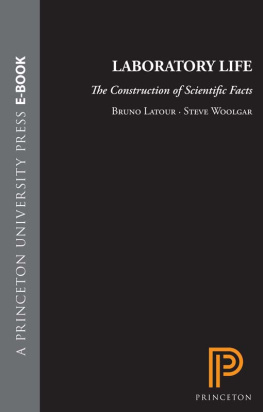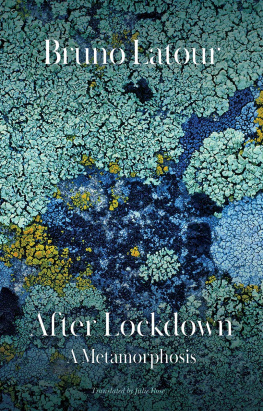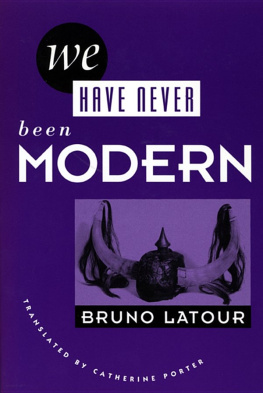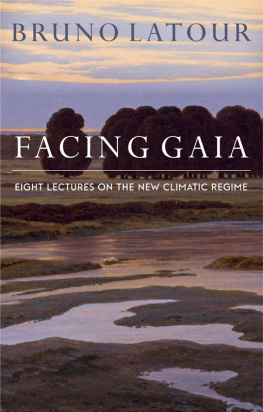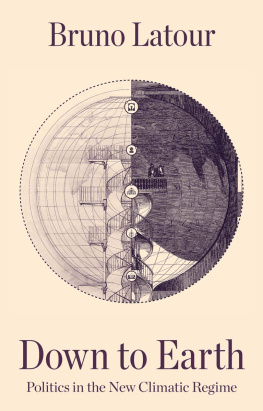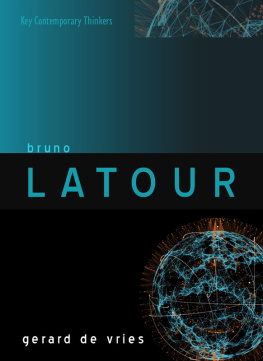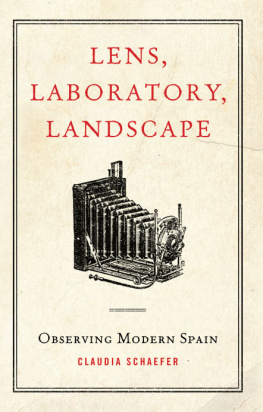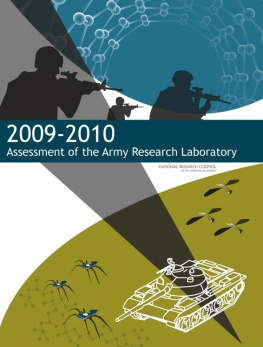
LABORATORY LIFE
LABORATORY LIFE
The Construction of
Scientific Facts
Bruno Latour Steve Woolgar
Introduction by Jonas Salk
With a new postscript and index by the authors
PRINCETON UNIVERSITY PRESS
PRINCETON, NEW JERSEY
Published by Princeton University Press, 41 William Street, Princeton, New Jersey 08540
In the United Kingdom: Princeton University Press, Guildford, Surrey
Copyright 1979 by Sage Publications, Inc.
Copyright 1986 by Princeton University Press
All rights reserved
Library of Congress Cataloging in Publication Data will be found on the last printed page of this book
First Princeton Paperback printing, 1986
LCC 85-43378
ISBN 0-691-09418-7
ISBN 0-691-02832-X (pbk.)
Clothbound editions of Princeton University Press books are printed on acid-free paper, and binding materials are chosen for strength and durability. Paperbacks, while satisfactory for personal collections, are not usually suitable for library rebinding.
Printed in the United States of America by Princeton University Press, Princeton, New Jersey
CONTENTS
PREFACE TO SECOND EDITION
The most substantial change to the first edition is the addition of an extended postscript in which we set out some of the reactions to the books first publication in the light of developments in the social study of science since 1979. The postscript also explains the omission of the term social from this editions new subtitle. Other minor additions include a detailed Table of Contents, Additional References, and an Index. Readers tempted to conclude that the main body of the text replicates that of the original are advised to consult Borges (1981).
Wolvercote, August 1985
To The Salk Institute
If sociology could not be applied in a thorough going way to scientific knowledge, it would mean that science could not scientifically know itself.
Bloor (1976)
Mfiez-vous de la puret, cest le vitriol de Ime.
M. Tournier (Vendredi)
ACKNOWLEDGEMENTS
The field research which forms the basis for the discussion in this volume was carried out by the first author. A Fulbright Fellowship (1975-1976), a NATO Fellowship (1976-1977), and a special grant from the Salk Institute financed the field research. Special thanks are due to Professor Roger Guillemin and his group, who made the field work possible. Subsequent writing was financially assisted by PAREX, the Maison des Sciences de lHomme and by Brunei University. It is a pleasure to acknowledge all those sources and to thank those who have taken the trouble to read sections of the work and make helpful criticisms.
INTRODUCTION
Scientists often have an aversion to what nonscientists say about science. Scientific criticism by nonscientists is not practiced in the same way as literary criticism by those who are not novelists or poets. The closest one comes to scientific criticism is through journalists who have had an education in science, or through scientists who have written about their own personal experiences. Social studies of science and philosophy of science tend to be abstract or to deal with well-known historical events or remote examples that bear no relationship to what occurs daily at the laboratory bench or in the interactions between scientists in the pursuit of their goals. In addition, journalistic or sociological accounts seem sometimes to have the sole purpose of proving merely that scientists are also human.
A love-hate relationship exists toward scientists in some segments of society. This is evident in accounts that deal with facets ranging from tremendously high expectations of scientific studies to their cost and their dangersall of which ignore the content and process of scientific work itself. In the name of science policy, studies of scientific activity by economists and sociologists are often concerned with numbers of publications and with duplication of effort. While such examinations are of some value, they leave much to be desired because, in part, the statistical tools are crude and these exercises are often aimed at controlling productivity and creativity. Most importantly, they are not concerned with the substance of scientific thought and scientific work. For these reasons, scientists are not drawn to read what outsiders have to say about science and much prefer the views of scientists about scientific endeavors.
However, the present book is somewhat different from accounts usually written by nonscientists about science. Its based on a two-year study by a young French philosopher which was carried out at The Salk Institute for Biological Studies and which was subsequently written up in collaboration with an English sociologist. Although I was not responsible for the initial invitation, I welcomed the opportunity to see if the approach that was contemplated would remedy some of the shortcomings of previous social studies of science.
The approach chosen by Bruno Latour was to become part of a laboratory, to follow closely the daily and intimate processes of scientific work, while at the same time to remain an inside outside observer, a kind of anthropological probe to study a scientific cultureto follow in every detail what the scientists do and how and what they think. He has cast what he observed into his own concepts and terms, which are essentially foreign to scientists. He has translated the bits of information into his own program and into the code of this profession. He has tried to observe scientists with the same cold and unblinking eye with which cells, or hormones, or chemical reactions are studieda process which may evoke an uneasy feeling on the part of scientists who are unaccustomed to having themselves analyzed from such a vantage point.
The book is free of the kind of gossip, innuendo, and embarrassing stories, and of the psychologizing often seen in other studies or commentaries. In this book the authors demonstrate what they call the social construction of science by the use of honest and valid examples of laboratory science. This in itself is an achievement for they are, in a sense, laymen to laboratory science and are not expected to grasp its fundamentals, but merely expected to comprehend only that which is easiest to understand, such as the superficial aspects of laboratory life.
In reading this book about my colleagues who have been observed under a sociologists microscope, I realized how scientific a study of science could be when viewed by an outsider who felt impelled to imitate the scientific approach he observed. The authors tools and concepts are crude and qualitative, but their will to understand scientific work is consistent with the scientific ethos. Their courage, and even brashness, in this undertaking reminds me of many scientific endeavors in which nothing stands in the way of the pursuit of an inquiry. This kind of objective observation by an outsider of scientists at work, as if they were a colony of ants or of rats in a maze, could be unbearable. However, this seems not to be so, and for me the most interesting part of the work and of its outcome, is that Bruno Latour, a philosopher-sociologist, began a sociological study of biology and along the way came to see sociology biologically. His own style of thought was transformed by our concepts and ways of thinking about organisms, order, information, mutations, etc. Curiously, instead of sociologists studying biologists, who in turn are studying life processesin a sort of infinite regressionhere are sociologists coming to recognize that their work is only a subset of our own kind of scientific activity, which in turn is only a subset of life in the process of organization.
Next page
